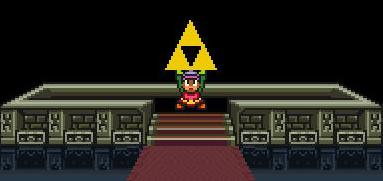Another thing that games teach us is to use the right technique, element, tool, weapon, or strategy for the job. In Pokemon, why do we use water-type techniques against fire-type pokemon and avoid using them on grass-type pokemon? Because it’s super effective! This same kind of mentality can and should be applied inside of the classroom.
Students are encouraged almost every day by their teachers to study right or to study harder; however, many students may still lack the correct study skills to succeed in a specific classroom where a specific teacher is trying to teach to a specific standard or objective. Often enough, these learning skills can be more practical and transferrable than the actual content.
Learning skills can be divided into different categories. Ormrod (2011) divides them into overt and covert learning strategies. She defines overt learning strategies as strategies that are “readily apparent” and observable by the teacher and covert learning strategies as “only mental activity” and thus not directly observable like overt learning strategies. Many times, these strategies overlap to assist one another in teaching students. For example, a strategy that Dr. Ormrod suggests to improve writing is creating summaries while one of her covert strategies is to regularly monitor one’s own learning.
I recently did an experiment for a project in one of my classrooms, dividing my classmates into three separate groups while an expert performed a simple kata (a set of specific, chronological motions in a martial arts style). I instructed each group to use a different learning strategy-taking notes on what they saw, summarizing what they saw, or actively shadowing what they saw. The groups were immediately given time to practice for two minutes before demonstrating what they learned to the classroom, and the vast majority practiced by moving their physical bodies in an attempt to reproduce our expert’s maneuvers. These college students were practiced in adopting the most appropriate or effective learning strategy and using it to accomplish their goal (reproducing the martial arts motions).
Imagine the difficulty that they would have had if their practice time had been limited to only reviewing their notes or summaries while the physically practicing group could continue to use the strategy found to be most effective.
Students have developed varying strategies through their academic careers before stepping into each teacher’s classroom, and they are limited by the strategies that they currently have and their ability to distinguish between effective versus ineffective strategies. As teachers, it’s important to recognize that our students don’t walk around with strategy guides in their back pockets with the best way to tackle every new concept, assignment, project, or test that we throw at them. Therefore, it’s important to understand what they do bring to the table and what techniques we bring to the table to help them be super effective in our classroom and classrooms that follow.
 The world seems to fall in and out of love with the concept of badges in education at an astonishing rate. One minute they’re claiming they represent something tangible that showcases hard work and dedication. The next they claim that it cheapens the process of learning. “Why strive for a badge when you can strive for knowledge?” they scream.
The world seems to fall in and out of love with the concept of badges in education at an astonishing rate. One minute they’re claiming they represent something tangible that showcases hard work and dedication. The next they claim that it cheapens the process of learning. “Why strive for a badge when you can strive for knowledge?” they scream.  Badges are great for another reason. They may be extrinsic, but they lead to intrinsic thinking. Children may start their quest to learn because there is a reward on the line, but as they mature they realize that knowledge is a reward. The ultimate reward. Getting students to learn, in fact getting ANYONE to learn, by using incentives should not be frowned upon. Hold your badges up with pride and say, “Look at what I did, world. Look at what I know.”
Badges are great for another reason. They may be extrinsic, but they lead to intrinsic thinking. Children may start their quest to learn because there is a reward on the line, but as they mature they realize that knowledge is a reward. The ultimate reward. Getting students to learn, in fact getting ANYONE to learn, by using incentives should not be frowned upon. Hold your badges up with pride and say, “Look at what I did, world. Look at what I know.”

 Pride – When you complete a game all you get is a virtual trophy, a high score, or possibly an alternate ending. Even though these rewards aren’t physical they still push players to obtain them. Achievements in video games are a source of pride. Sure, it took you hours and hours to get that one achievement, but you can show it off to all your online buddies. I caught all 150 original Pokemon in the late 90’s, and I told everyone I knew, even if they didn’t care.
Pride – When you complete a game all you get is a virtual trophy, a high score, or possibly an alternate ending. Even though these rewards aren’t physical they still push players to obtain them. Achievements in video games are a source of pride. Sure, it took you hours and hours to get that one achievement, but you can show it off to all your online buddies. I caught all 150 original Pokemon in the late 90’s, and I told everyone I knew, even if they didn’t care. Fun – Another reason gamers game is purely for entertainment. It’s fun! I love my life and everyone in it, but it’s still exciting to step in to Link’s boots and rescue Zelda. I can’t run around with a sword slaying enemies and collecting rupees in real life without the local police getting involved, so I pick up a wiimote and escape in to the world of Zelda. Many students don’t want to be at school. They may not hate it, but they’d rather be elsewhere. Why not make school a place where students
Fun – Another reason gamers game is purely for entertainment. It’s fun! I love my life and everyone in it, but it’s still exciting to step in to Link’s boots and rescue Zelda. I can’t run around with a sword slaying enemies and collecting rupees in real life without the local police getting involved, so I pick up a wiimote and escape in to the world of Zelda. Many students don’t want to be at school. They may not hate it, but they’d rather be elsewhere. Why not make school a place where students 
Recent Comments